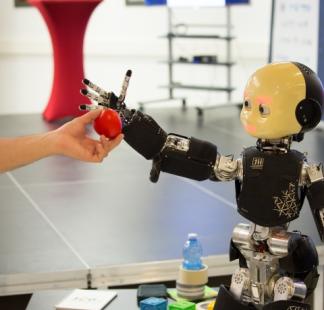Displaying 61 - 72 of 131
19 May 2026 - 22 May 2026
Face to Face
Inspired by the UNESCO Framework on AI and Digital Transformation for Civil Servants, this course provides an introduction to AI with a focus on its…
Languages:
- English
19 May 2026 - 21 May 2026
Face to Face
Digital and AI transformation are critical enablers for advancing sustainable development and economic resilience, particularly in landlocked and…
Registration:
Open until 22 Mar 2026
Languages:
- English
Open
Online self-paced
Information and communication technologies (ICTs) have become a part of everyone life as the primary means for communications, information sharing,…
Languages:
- Arabic
- English
- French
- Russian
- Spanish
25 May 2026 - 05 Jun 2026
Online instructor led
The course offers a comprehensive exploration of Artificial Intelligence, examining its evolving landscape and its capacity to drive inclusive and…
Registration:
Open until 03 May 2026
Languages:
- English
25 May 2026 - 19 Jun 2026
Online instructor led
This training explores the management of radio spectrum for satellite communication systems. It introduces the core principles of spectrum management…
Registration:
Open until 04 May 2026
Languages:
- English
Open
Online self-paced
Every day we see how Information and Communication Technologies (ICTs) impact our lives and participation in society by the way we work, learn,…
Languages:
- Arabic
- English
- French
- Russian
- Spanish
01 Jun 2026 - 02 Jun 2026
Online instructor led
The course gives an overview on Telecom products Type Approval through an introductory session on compliance related fields of Radio Frequency (RF),…
Registration:
Open until 11 May 2026
Languages:
- English
01 Jun 2026 - 04 Jun 2026
Face to Face
Expanding school connectivity is not only a technical challenge, it is a governance and ecosystem coordination endeavour that underpins the digital…
Registration:
Open until 23 Mar 2026
Languages:
- English
Open
Online self-paced
This course engages parents in understanding the nature of children's online engagements, focusing on reducing risks and safeguarding children online…
Languages:
- English
01 Jun 2026 - 30 Jun 2026
Online instructor led
À mesure que les gouvernements renforcent leur dépendance aux plateformes numériques et aux services cloud, la souveraineté numérique se définit par…
Registration:
Open until 15 Jun 2026
Languages:
- French
05 Jun 2026 - 15 Jul 2026
Online instructor led
Rapid development of digital technologies provides new opportunities for public policy. Technologies such as artificial intelligence, e-government…
Registration:
Open until 17 May 2026
Languages:
- English
Open
Online self-paced
Aimed at parents and guardians, this course covers child online behaviours, threats, and risks, helping to build open conversations about cyber…
Languages:
- English








